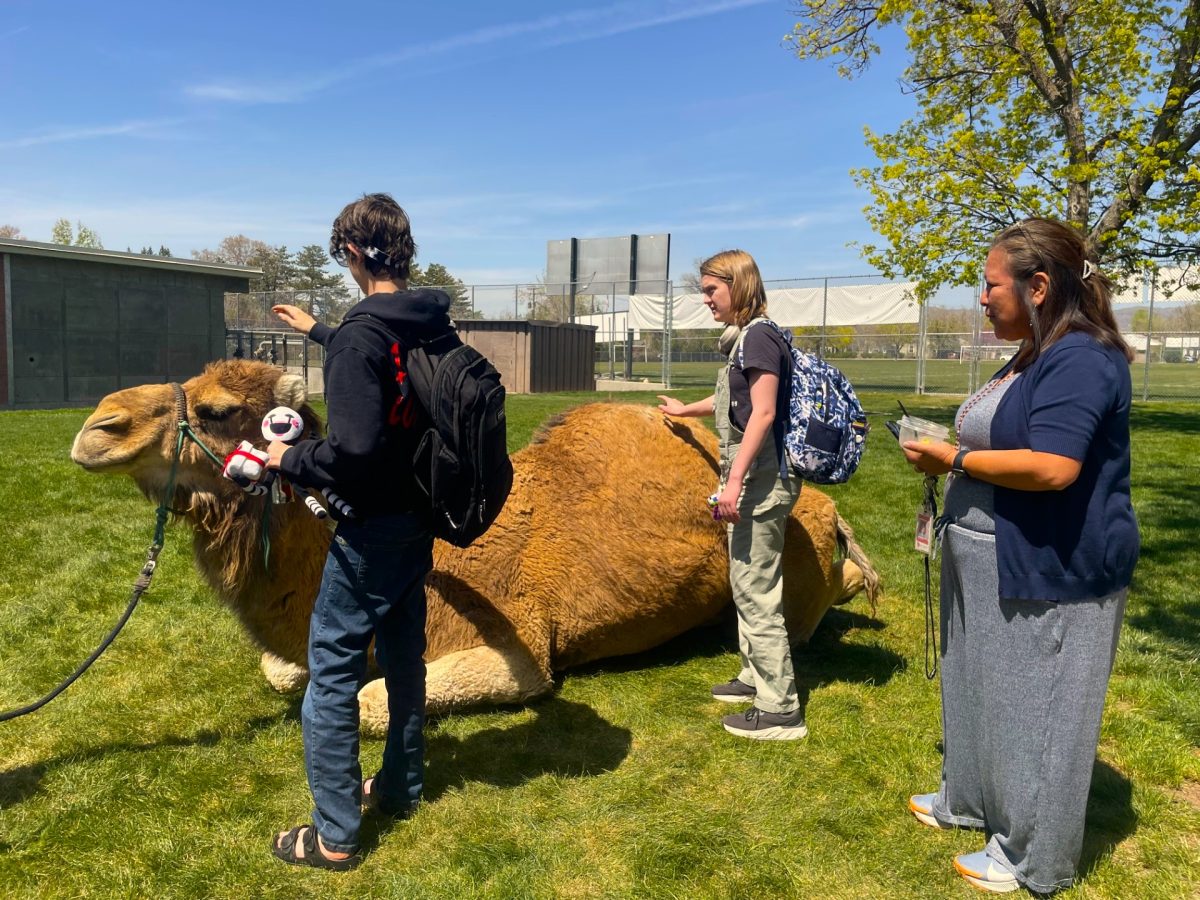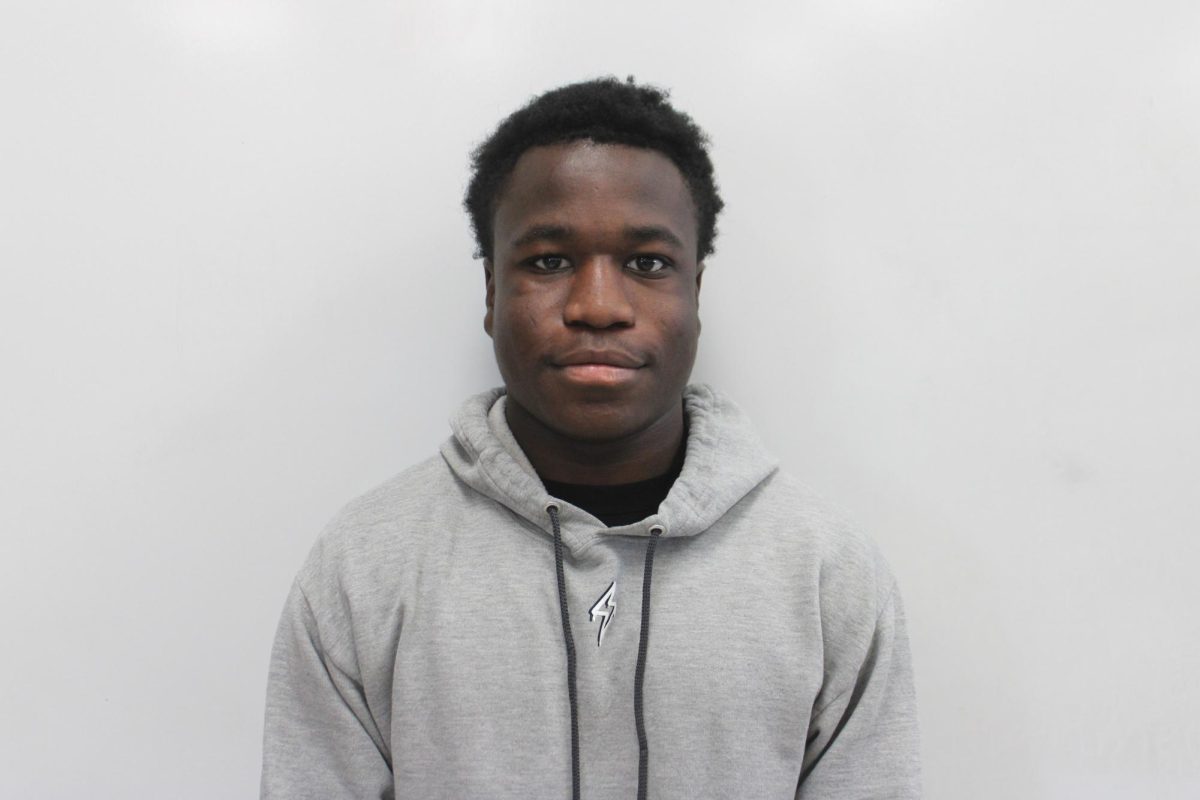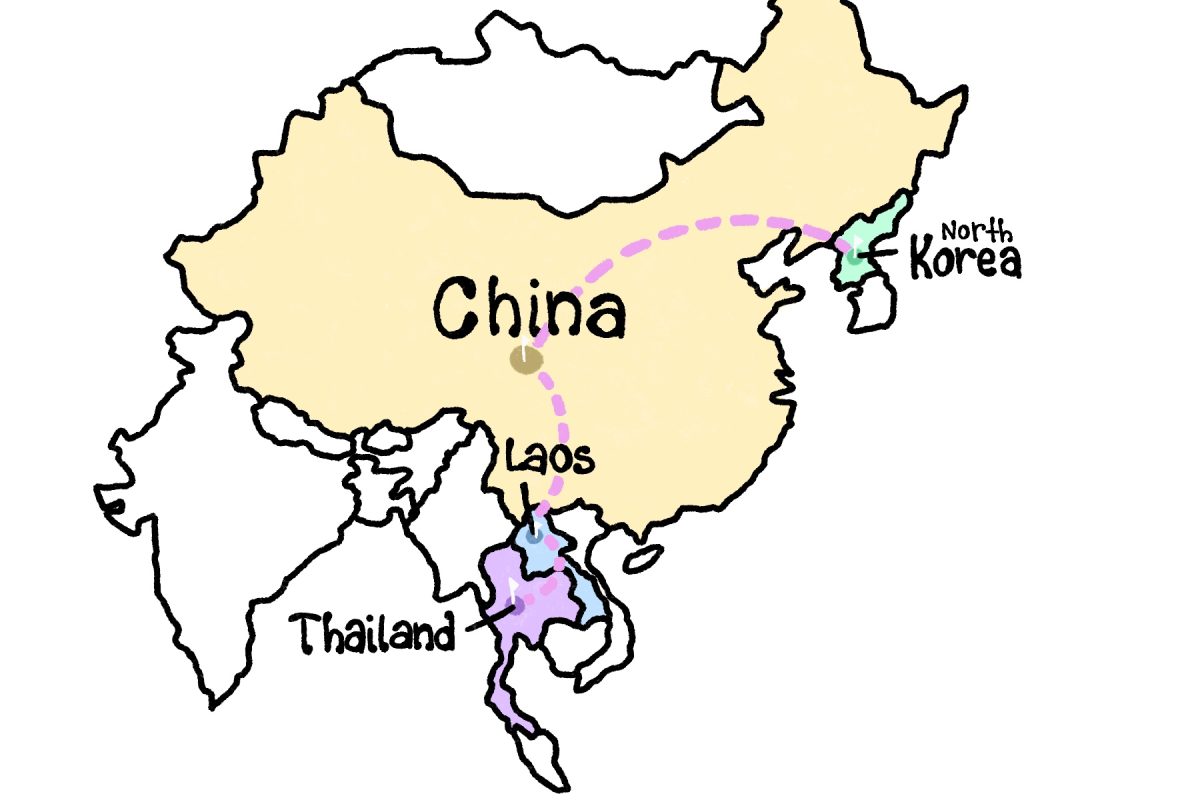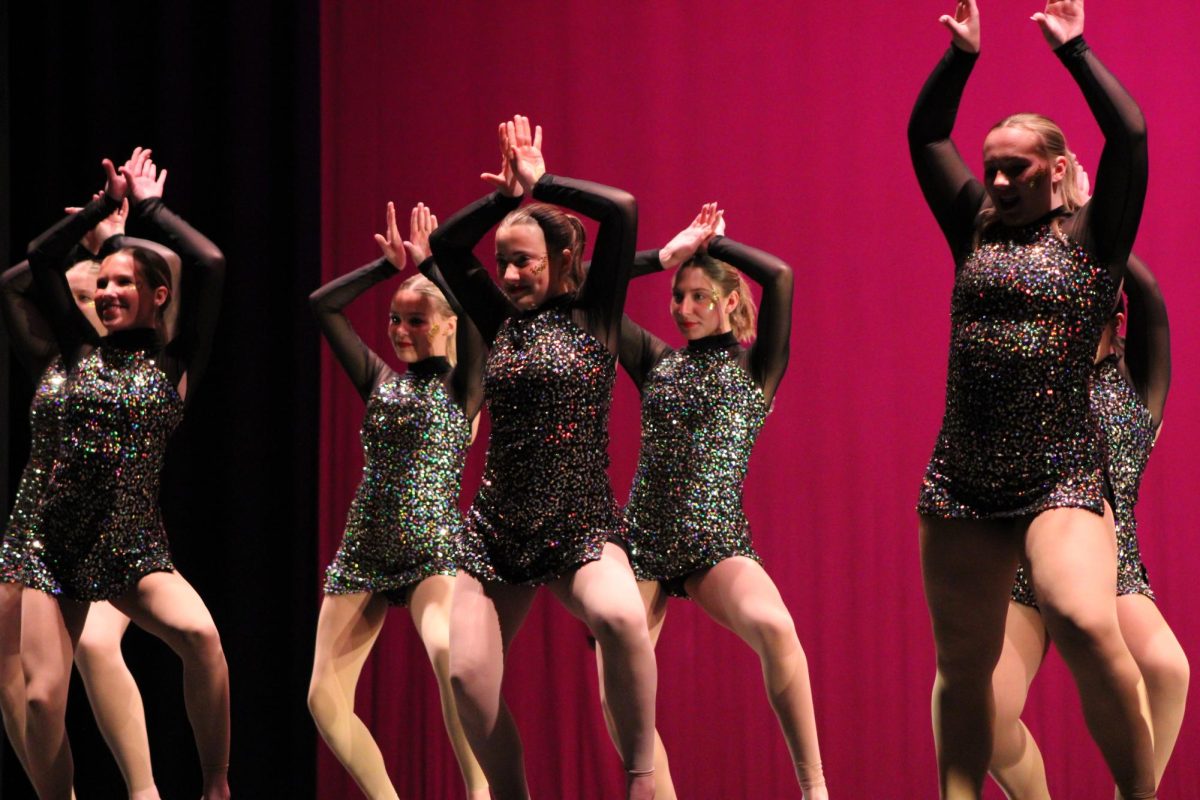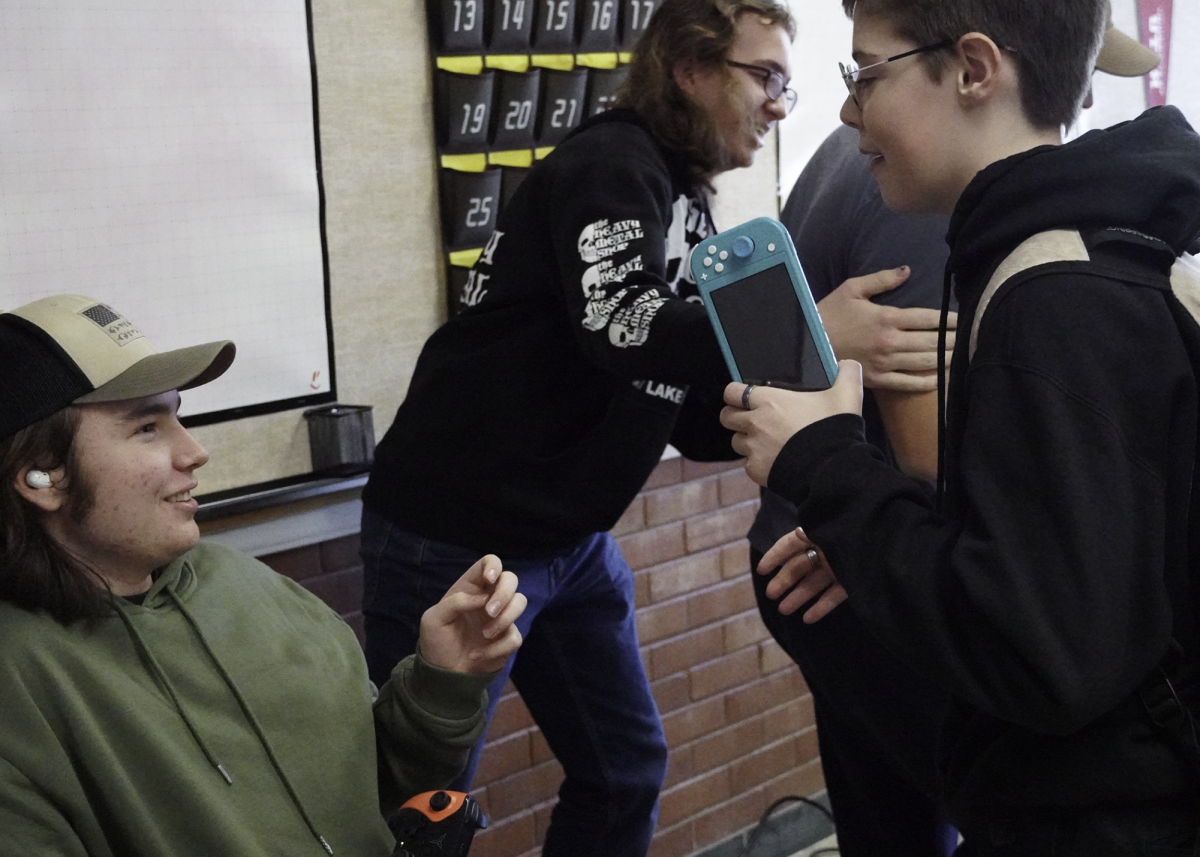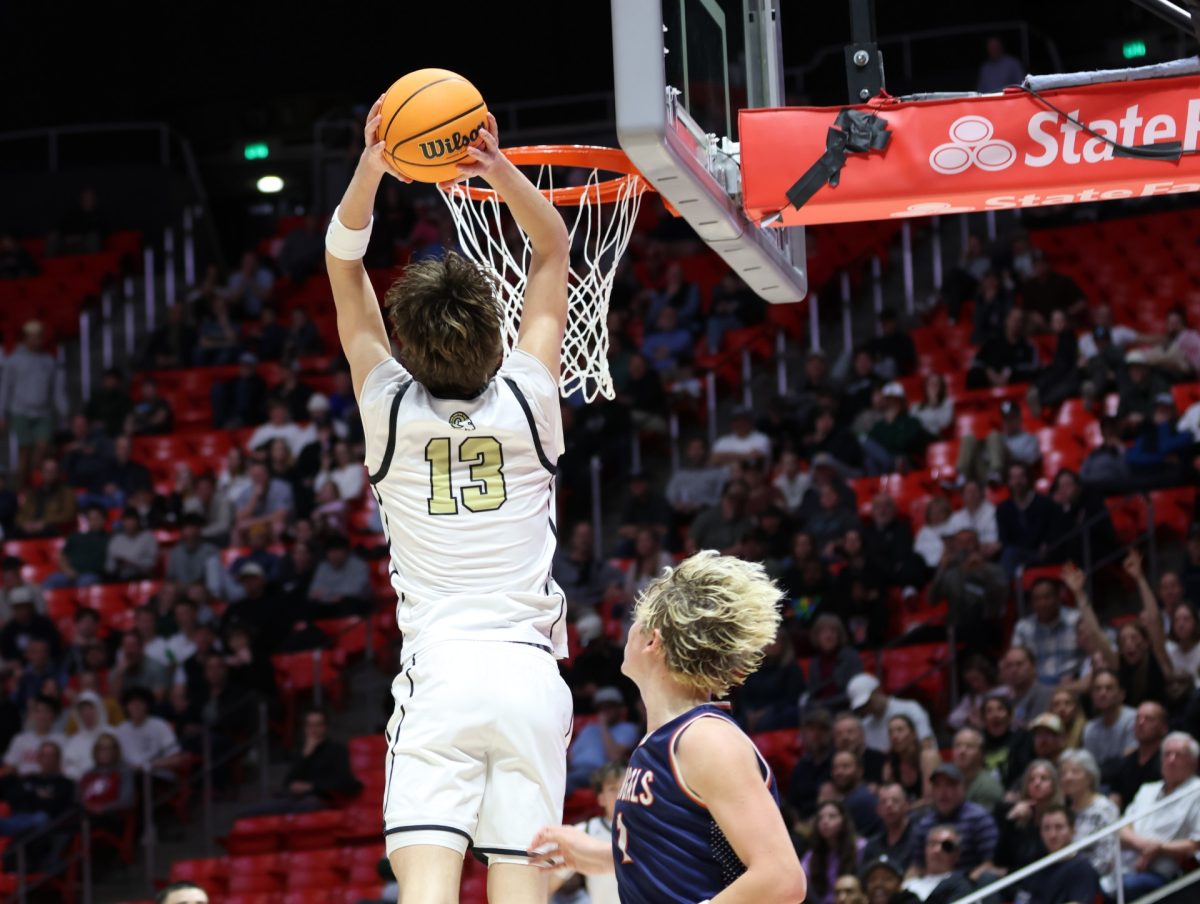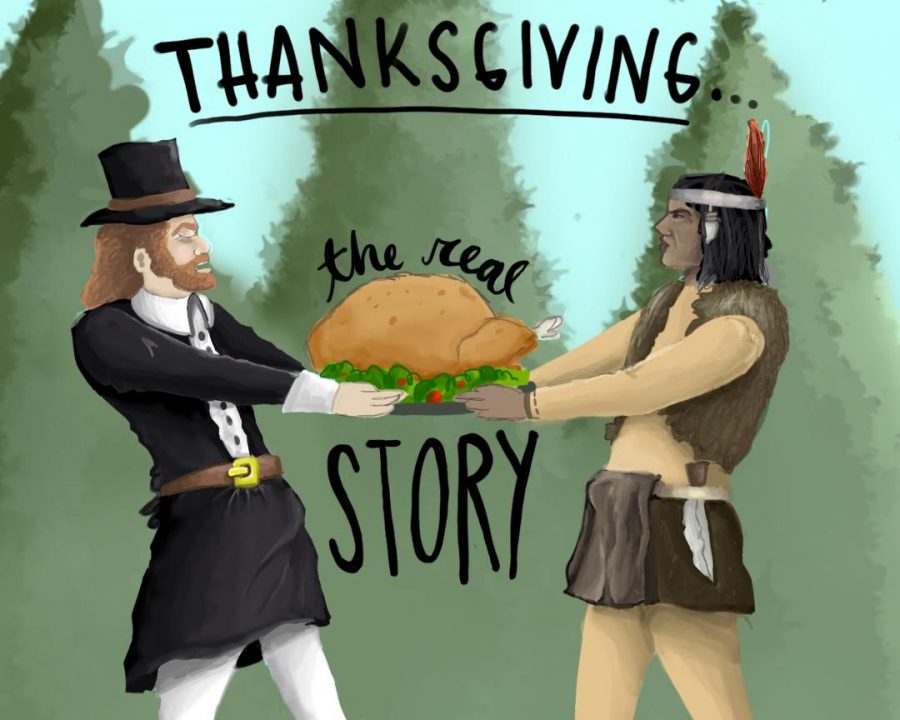Native Americans Are Victims Of Cultural Misrepresentations
December 16, 2016
If you are like most Americans, you probably celebrated Thanksgiving by consuming enormous amounts of turkey, potatoes, stuffing and gravy, topped off by a large slice of pumpkin pie. After which many of us watched as the Dallas Cowboys dismantled the Washington Redskins. The irony of a professional football team called the “Redskins” losing to “America’s team” on Thanksgiving was probably lost to most people. The word Redskins is a controversial term. Many Caucasian Americans say that it is an innocuous term that stems from Native Americans painting their faces red. Many Native Americans find the term derogatory and claim its origin comes from stories and stereotypes of ferocious savages scalping and being scalped.
I grew up hearing stereotypes, many of which have stayed with me. Stereotyping can be dangerous, it not only distorts reality but it also can leave cultures nearly forgotten. At Highland the Native American students feel forgotten unless it’s Thanksgiving at which point they are stereotyped. It’s no wonder this is the most at risk demographic in Utah. Thanksgiving is a perfect example of a holiday that has been plagued with stereotypes.
When many people think about Thanksgiving they think of Native Americans sitting down at a table to enjoy a feast with the pilgrims. At least that’s what I though the story was and had grown up learning. Of course, the food might be a little different I supposed, disregarding the error that is the actual story. Native Americans saved the pilgrims from an almost certain death. Dying of starvation and lack of medication, the Native Americans not only brought them food, but also helped the colonists to learn about agriculture and herbal medicines. In doing so, they helped these starving colonists to survive. The indigenous individuals then asked that there would be a peace treaty so that they could preserve their land. A feast did commence but other Europeans soon came and started slaughtering the Native Americans for land. The relations between Native Americans and the white man has yet to be indemnified. But over the years, the story has evolved and changed, leaving the wrong impression.
Thanksgiving is not just a day; it is the idea of a larger concept, one that often deludes children, and even adults to believe that early Colonists and Native Americans got along. In reality, this is not true. Native Americans helped these struggling and starving people only to be met with years of death and desolation. Yet textbooks and many schools fail to discuss in detail the violence and cruelty that has been used repeatedly throughout history to oppress the Native American people. But no one seems to talk about it, and when the topic is finally discussed it is laden with stereotypes and errors. Schools and parents need to discuss what really happened and make special effort to destroy the stigmas that affect Native American people.
“I took AP United States History last year and there was really only one chapter about us when in reality we were there the entire time. It is kind of disappointing to me that that’s all we get. The chapter was not about what happened to us, the fact that 90 percent of the Native American people did die, it is more about how we lived and how we “live” in Tipi’s and stuff like that when in reality that is just adding stereotypes,” Tiara Willie said.
It is unfortunate that while the whole month of November is Native American Heritage month people only remember to think of the indigenous individuals on the fourth Thursday. Most people have no idea that there even is a month dedicated to Indigenous individuals, let alone that the month is November. When people do think about Native Americans it is often heaped with piles of stereotypes that have been perpetuated because of a lack of understanding and cultural competence.
“I know that there are not a lot of Native Americans at this school, and of the Native American population, many are considered Mexican unless they speak up and say they are Native American. I think there are certain stigmas that are associated with being Native American. They just assume we are a certain way. I have seen how people have commented on stuff saying that ‘Native Americans are horrible’ that we are living off of casinos. I don’t know why people do that,” Juniper Benally, a member of Highland’s Native American Heritage Club said.
These stereotypes do not just surround reservations, though. They are highly prevalent during the Thanksgiving season.
“I don’t like the fact that we are falsely represented during Thanksgiving, especially how we are often portrayed as savages. Many people do not have a correct understanding of the first Thanksgiving and the story has been forgotten and pushed aside,” Denise Willie, the mother of Tiara Willie said.
Thanksgiving is a wonderful holiday, but it is important that as we celebrate by chowing down on prodigious amounts of food that we recognize what really happened to the people that first settled this country and are still discriminated against and stereotyped today. It is only through teaching what really happened that people will start to overcome their ignorance.


